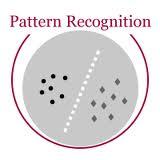
Positive semidefinite matrix factorization (PSDMF) expresses each entry of a nonnegative matrix as the inner product of two positive semidefinite (psd) matrices. When all these psd matrices are constrained to be diagonal, this model is equivalent to nonnegative matrix factorization. Applications include combinatorial optimization, quantum-based statistical models, and recommender systems, among others. However, despite the increasing interest in PSDMF, only a few PSDMF algorithms were proposed in the literature. In this work, we provide a collection of tools for PSDMF, by showing that PSDMF algorithms can be designed based on phase retrieval (PR) and affine rank minimization (ARM) algorithms. This procedure allows a shortcut in designing new PSDMF algorithms, as it allows to leverage some of the useful numerical properties of existing PR and ARM methods to the PSDMF framework. Motivated by this idea, we introduce a new family of PSDMF algorithms based on iterative hard thresholding (IHT). This family subsumes previously-proposed projected gradient PSDMF methods. We show that there is high variability among PSDMF optimization problems that makes it beneficial to try a number of methods based on different principles to tackle difficult problems. In certain cases, our proposed methods are the only algorithms able to find a solution. In certain other cases, they converge faster. Our results support our claim that the PSDMF framework can inherit desired numerical properties from PR and ARM algorithms, leading to more efficient PSDMF algorithms, and motivate further study of the links between these models.
翻译:半肯定半肯定矩阵因子化(PSDMF)表示非负矩阵的每个条目,作为两个正半确定矩阵(PSDMF)的内部产物。当所有这些psd矩阵都限于对等矩阵时,这个模型相当于非负矩阵因子化。应用包括组合优化、量基统计模型和建议系统等。然而,尽管对FSPMF的兴趣日益增强,文献中只提出了少数FSPMF的算法。在这项工作中,我们为FSPMF提供了一系列工具,显示FSMF的算法可以基于阶段检索(PR)和速级最小化(ARM)算法的内在产物设计。这个程序允许在设计新的DPFMF算法时有一个捷径,因为它能够将现有的PRMF和ARM方法的一些有用数字属性运用到FSMF的框架中。由于这个想法,我们引入了一个基于迭代硬门槛的SFMFK算法的新的组合算法。这个家庭分数在先前提出的TFMFMF方法之间可以设计一个高度的分数,在SMFMFMFMF(PRMFMFMFR)法中,我们提出的一些最有利的方法中可以解决一些困难的内的问题。



